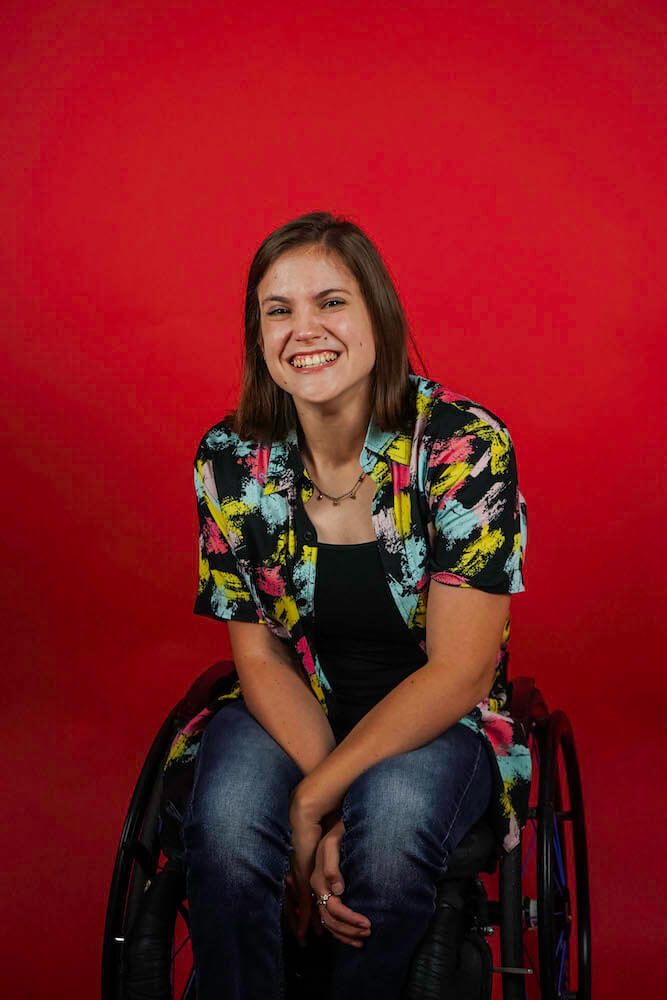About Rachel
Rachel Doud, originally from Oklahoma, moved to Birmingham in high school to join Lakeshore Foundation's women’s wheelchair basketball team.
Since graduating high school, she has moved to Tuscaloosa and is currently pursuing her undergraduate degree in psychology with a focus in addiction and recovery at the University of Alabama.
She still enjoys basketball and is on the UA Women's Wheelchair Basketball Team. She also enjoys creating digital art in her free time.
Rachel Doud on Ableism
[00:00] My name is Rachel Doud. I'm disabled with spina bifida. I am a wheelchair basketball athlete. I'm an artist, and I'm a human being.
[00:12] So growing up in Oklahoma, being the, one of the only kids, probably the only kid in my town that had a physical disability, made me feel very othered, particularly because of how I was treated by the community. And that just felt very isolating and made me feel like I was, the way I was, was a problem for society. The only experiences I've had in that community was being prayed for, like constantly, or like, just, you know, being treated like, “I need to be fixed” kind of thing, which is common.
[0:54] What? That ableism happens every day of my life? Yeah. So it is internalized ableism, that's on self worth. I do experience ableism. It's discrimination in favor of able-bodied people. When I go into an interview, oftentimes, what I'm afraid of happening, usually does happen. They see the chair. They see what they, you know, physically is very apparent. And they make a judgement based off of that. And they'll never tell you that you didn't get the position because of your disability, because of what they see. But I'm sure it has a factor, and that's been very frustrating.
[01:33] And I see it like too within the disabled community, a sort of ableism, especially with sports, oddly enough. You would think, "Oh, you know, we're all in this together, we all have disabilities, yay," you know, we're all here for each other. But there's like a, there's a ranking system with classification within my sport and within many Paralympic sports, which, you know, that's okay, that makes sense that there is you know, a system to differentiate the different athletes. I completely understand that. But I think we internalize it as to mean like worth, so like I am this point in the scale. That means that I am worse off than this person, this person can walk, this person can do these things. So that might, you know, disqualify me for playing time. It doesn't, and it shouldn't, but sometimes it might feel like it does.
[02:24] I wouldn't take away my disability. Without the disability, I am not me. If I was born without one, I would be someone else. And I wouldn't have the same experiences that I do now. I can, you know, I can be proud of myself, for many things that I've done, that my disability hasn't impacted and for the things that it has.
[02:49] How we treat people matters. I shouldn't be treated differently just because I look different than somebody else walking down the street. It's difficult to not treat someone differently because we don't know how to treat them. You know, they look different. Maybe I should treat them differently. But it affects, it affects us, every aspect of ourselves. You know, we might go home and think about it for a while. I know I've done that. It affects our mental health and affects our physical health and affects who we are as a person.

